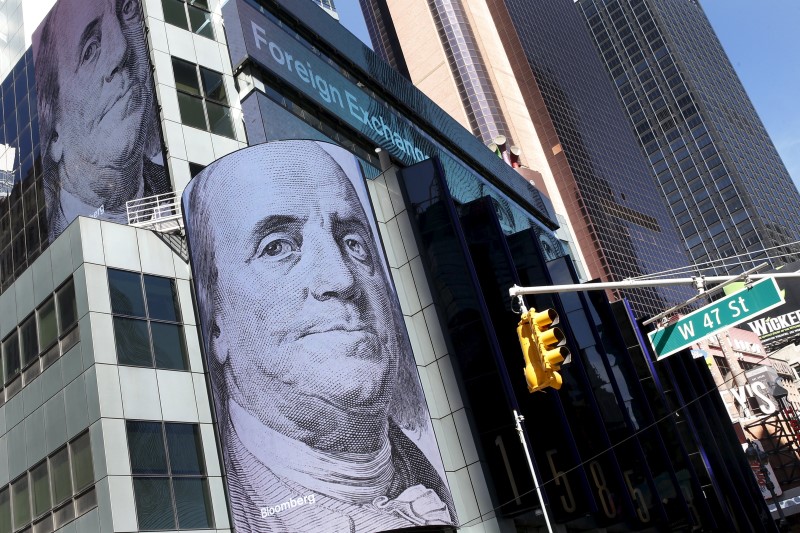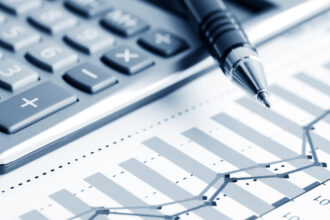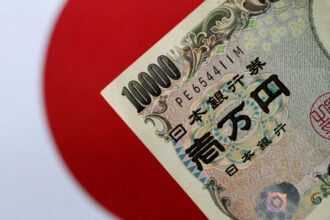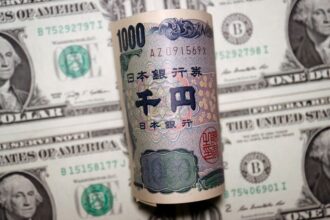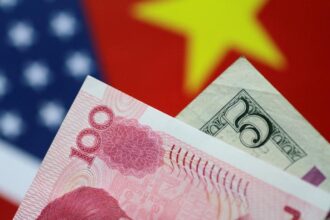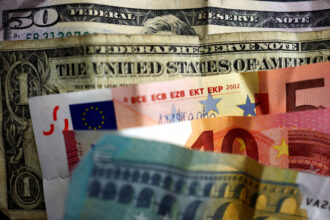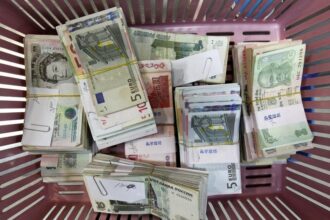By Miguel Lo Bianco and Claudia Martini
BUENOS AIRES (Reuters) – Argentines, up against painful annual inflation at 113% and rising, are running a daily gauntlet to find deals and lower prices as rapid hikes often leave big differences from one shop to the next, with scattered discounts to lure shoppers.
The South American country is expected to post monthly inflation of near 12% later on Wednesday, which would be the highest since 1991, a figure that would be eye-watering even as an annual figure in most countries worldwide.
The fast price rises, exacerbated by a devaluation of
the peso currency last month, are driving a cost-of-living crisis, have left 40% of people in poverty, and are stoking anger at the traditional political elite ahead of October elections.
“It’s so hard. Each day things costs a little more, it’s like always racing against the clock, searching and searching,” said Laura Celiz as she shopped for groceries in Tapiales on the outskirts of Buenos Aires. “You buy whatever is cheaper in one place and go to the next place and buy something else.”
Her husband, Fernando Cabrera, 59, was doing sums on a calculator to compare fruit and vegetable prices.
“In this way we try to beat inflation or at least compete with it a little,” he added.
Argentina is caught in a cycle of economic crises, with a major loss of confidence in the peso driving steady depreciation, triple-digit inflation, negative central bank reserves and a flagging economy due to drought hitting farming.
The country is also battling to salvage a $44 billion deal with the International Monetary Fund (IMF) and facing the prospect of a $16 billion legal bill after a U.S. court ruling related to the state takeover of energy firm YPF a decade ago.
That’s playing into a race towards presidential elections next month, with radical libertarian Javier Milei the shock frontrunner ahead of establishment candidates economy minister Sergio Massa and conservative Patricia Bullrich.
And inflation itself could still get worse amid the election uncertainty, which has revived memories of hyperinflation from the 1980s among those who lived through it.
“Some estimate say it could accelerate to 180%, which is why we are talking about record inflation levels,” said local economic analyst Damián Di Pace, adding that other nations in the region were meanwhile seeing inflation cool.
“While the rest of the Latin American countries have single-digit inflation, Argentina is already in triple-digits.”
Business owners, who themselves face a tricky cycle of wholesale prices rising before they’ve shipped merchandise and been able to restock, are also suffering from product shortages due to the uncertainty of inflation.
Butcher Marcelo Capobianco, 53, fears having to close his business and is considering emigrating overseas. He displays meat prices in dollars, the currency that many use as a refuge from the constant devaluation of the peso.
“It’s dramatic. We don’t know how we’re going to pay the rent this month, how we’re going to pay the electricity,” Capobianco said at his butcher shop in Olivos, on the outskirts of Buenos Aires. “People are angry and have every right to be because they can’t afford to buy a kilo of meat.”
“We are already thinking about what we are going to do because, in reality, if this continues, I think we are going to have to shut up shop,” he said.
Read the full article here


